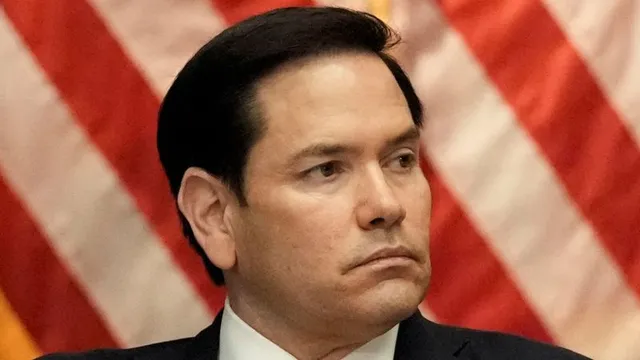
Marco Rubio skips crucial Ukraine ceasefire talks in London
2025-04-23 11:18- Marco Rubio is not attending peace talks in London aimed at ending the conflict in Ukraine due to logistical issues.
- Ukraine's President Volodymyr Zelensky stated that Kyiv would not accept any deal recognizing Moscow's control of Crimea.
- The downgrading of the talks indicates tensions remain high, and the US may withdraw from negotiations without progress.
Express your sentiment!
Insights
On April 23, 2025, significant discussions aimed at resolving the conflict in Ukraine were scheduled to take place in London, but the engagement was downgraded due to the absence of key officials. US Secretary of State Marco Rubio and special envoy Steve Witkoff confirmed they would not attend, leading to a diminished atmosphere for the planned ministerial debates. The diplomatic efforts were intended to consider a ceasefire proposal that would involve Russia's recognition of its control over Crimea, a critical and controversial aspect. Ukraine's President Volodymyr Zelensky had already stated that Kyiv would reject any agreement legitimizing Russian claims over Crimea, aligning with Ukraine’s constitutional provisions against recognizing the annexation made in 2014.
Contexts
The history of Crimea's annexation by Russia is a complex and significant geopolitical event that has roots in both the historical territorial claims of Russia and the modern geopolitical landscape of Eastern Europe. Crimea, a peninsula located on the northern coast of the Black Sea, was transferred from Russia to Ukraine in 1954 when both were part of the Soviet Union. Following the dissolution of the USSR in 1991, Crimea became part of independent Ukraine. However, the Russian population in Crimea, along with its strategic military importance, has made it a focal point of conflict between Ukraine and Russia, especially after the rise of pro-European sentiments in Ukraine during events such as the Orange Revolution in 2004 and Euromaidan in 2013-2014. In February 2014, amid political unrest in Ukraine and the ousting of pro-Russian President Viktor Yanukovych, Russia began a military intervention in Crimea, deploying troops and taking control of key infrastructure. This swift military maneuver was accompanied by a controversial referendum held on March 16, 2014, in which the local authorities claimed that over 95% of voters supported joining Russia. This referendum was widely condemned by Ukraine and most of the international community, who considered it illegal and illegitimate, arguing that it violated Ukrainian sovereignty and international law. Following the annexation, Russia faced significant international backlash, with many countries imposing economic sanctions against Russian entities and individuals. The United States, European Union, and various other nations did not recognize the legality of the annexation and continued to support Ukraine's territorial integrity. The situation led to heightened tensions between NATO and Russia, with military buildups and increased rhetoric on both sides, harkening back to Cold War-era dynamics. The conflict in Eastern Ukraine escalated as pro-Russian separatists in Donetsk and Luhansk declared independence, leading to an ongoing armed conflict that has claimed thousands of lives and led to significant humanitarian crises. The annexation of Crimea has had broader implications for international relations and security in Europe. It has prompted discussions surrounding NATO's role in Eastern Europe and the security guarantees for member states bordering Russia. Additionally, the situation has spurred discussions on energy dependence on Russia, as it controls significant gas supplies to Europe. The geopolitical landscape continues to evolve, and as of April 2025, the conflict remains unresolved, with ongoing tensions, international negotiations, and a complex interplay of local and global interests. The annexation is a pivotal moment that illustrates the fragility of borders, national identities, and the geopolitical chess game played by major powers in the 21st century.